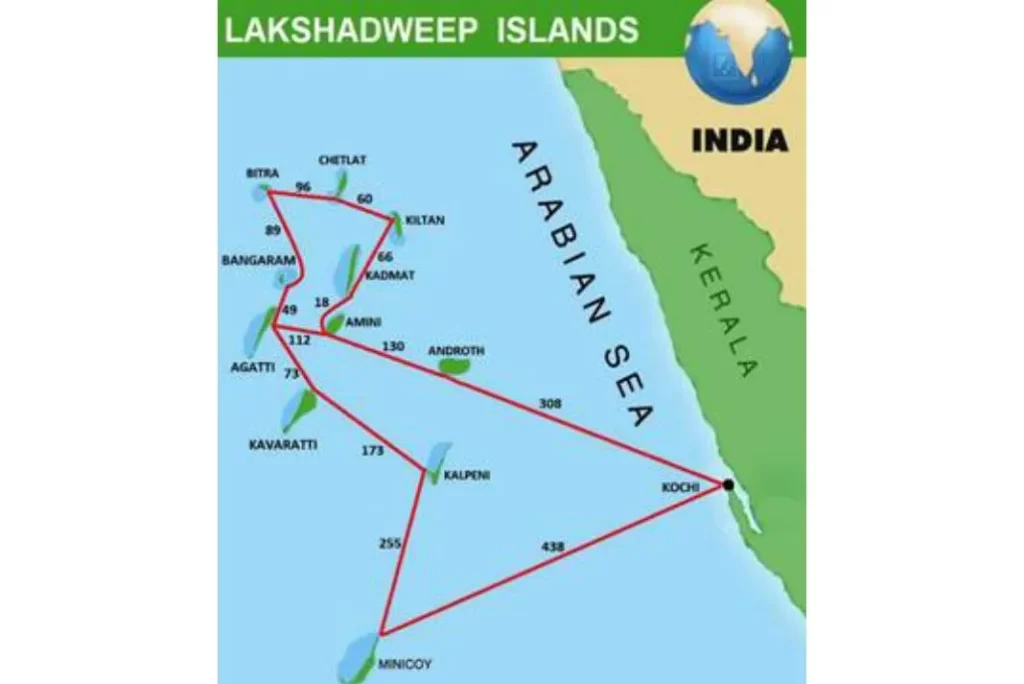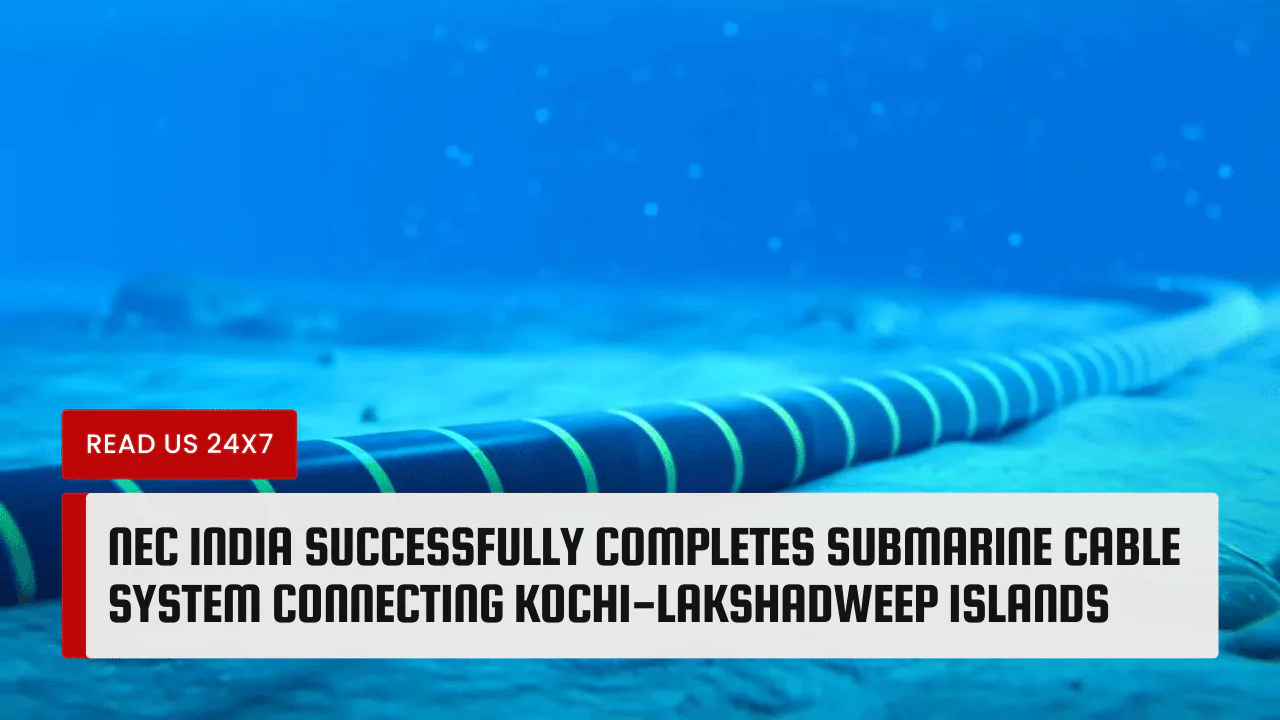NEC India, in collaboration with BSNL, has achieved the successful completion of a flagship optical submarine cable system connecting Kochi and the Lakshadweep Islands. The project, awarded to NEC India in September 2021, was finished ahead of schedule in June 2023. Spanning approximately 1,870 kilometers, the submarine cable system provides an initial capacity of 2×100 Gbps, expandable up to 1,600 Gbps per fiber pair, supporting digital initiatives and e-commerce in the region.
About the Submarine Cable System

The Kochi-Lakshadweep Islands Submarine Cable (KLI) system was inaugurated by Prime Minister Shri Narendra Modi on January 12, 2024. The project was funded by the Universal Services Obligation Fund (USOF) under the Department of Telecommunications, Government of India, and executed by Bharat Sanchar Nigam Limited (BSNL), a state-owned telecommunications company.
NEC India was awarded the project by BSNL in September 2021 and completed it ahead of schedule in June 2023. The system spans approximately 1,870 kilometers and connects Kochi, a major port city in India, with 11 Lakshadweep islands: Agatti, Andrott, Amini, Bangaram, Bitra, Chetlat, Kadmat, Kavaratti, Kiltan, Kelpeni, and Minicoy.
Prime Minister Narendra Modi recently inaugurated projects worth ₹1,156 crore in Lakshadweep, including the Kochi-Lakshadweep Submarine Optical Fibre Cable. This initiative aims to provide 100 Gbps internet connectivity to the islands.
The undersea cable, laid by BSNL and executed by Japanese firm NEC, is set to bring 100 times faster internet to the people of Lakshadweep. The project includes the connection of Kavaratti, Lakshadweep’s capital, along with other islands, enabling telecom companies to offer 4G, 5G, and high-speed home broadband for the first time in the archipelago.
The funding for the project came from the Universal Service Obligation Fund (USOF), set to be renamed Digital Bharat Nidhi. The PM also inaugurated various other projects, including a low-temperature thermal desalination plant, tap connections, a solar power plant, and educational institutions, emphasizing the government’s efforts to develop Lakshadweep.
Benefits of the Submarine Cable System
The KLI system brings several benefits to the region, such as:
- Improved connectivity: The system provides reliable and high-speed internet access to the Lakshadweep Islands, which were previously dependent on satellite communication. This enhances the quality of life and communication for the residents and visitors of the islands, as well as the administration and security personnel.
- Support for digital initiatives and e-commerce: The system enables the implementation of various digital initiatives and e-commerce platforms on the islands, such as e-education, e-health, e-governance, e-banking, e-commerce, and e-tourism. These initiatives help improve the delivery of public services, promote digital literacy and empowerment, and create new opportunities for entrepreneurship and employment.
- Completion ahead of schedule: The system was completed in less than two years, ahead of the target of 1,000 days set by the Prime Minister in his speech on India’s 74th Independence Day in 2020. This demonstrates the efficiency and commitment of the project partners, as well as the support and cooperation of the local authorities and communities.
Impact of the Submarine Cable System
The KLI system is expected to have a positive impact on the Lakshadweep Islands, such as:
- Improved telecommunications: The system enhances the telecommunications infrastructure and services on the islands, which are crucial for the socio-economic development and security of the region. The system also enables better coordination and communication among the various agencies and stakeholders involved in the development and administration of the islands.
- Boost to economic development: The system stimulates the economic growth and diversification of the islands, which are largely dependent on tourism and fisheries. The system facilitates the promotion and development of tourism, fisheries, and other sectors, as well as the attraction of investments and businesses to the region. The system also contributes to the creation of jobs and income for the local population, as well as the enhancement of their skills and capacities.
Other Developments in Lakshadweep
Laptops for Students and Cards
During his visit to the Lakshadweep islands, Prime Minister Narendra Modi distributed laptops to college students, bicycles to girl students, Kisan Credit Cards, and PMJAY Cards. He highlighted the government’s efforts in developing Lakshadweep, including achieving saturation of PM Awas Yojana (Gramin), providing free ration to every beneficiary, distributing PM Kisan Credit Cards and Ayushman Cards, and planning the development of Ayushman Arogya Mandir Health and Wellness Centres in various islands.
Higher Education System
Prime Minister Narendra Modi highlighted the absence of higher education institutions in Lakshadweep in previous years, leading to the youth’s exodus. To address this, he mentioned the launch of educational institutions for arts and science on Andrott and Kadmat islands and a Polytechnic College in Minicoy. Additionally, steps are being taken for the benefit of Hajis in Lakshadweep, and he mentioned the advantages of increased seafood exports, including tuna, and exploring the potential of seaweed farming in the islands.


